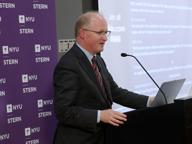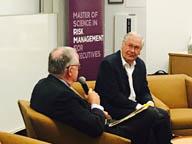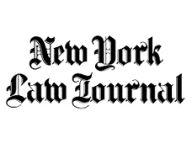Faculty News
—
Professor Paul Romer's research on macroeconomics is featured
—

Excerpt from Bloomberg View -- "What will happen to macroeconomics? Critics such as Romer have become more numerous and vocal, and the old guard is increasingly on the defensive. Consumers of research could do their part by demanding work built on more realistic assumptions, developed in keeping with normal scientific standards and having more practical relevance. If research funding agencies and central banks stopped supporting the creation of models filled with unrealistic assumptions -- what Romer calls post-real economics -- the discipline could begin healing itself."
Faculty News
—

Excerpt from Bloomberg View -- "What will happen to macroeconomics? Critics such as Romer have become more numerous and vocal, and the old guard is increasingly on the defensive. Consumers of research could do their part by demanding work built on more realistic assumptions, developed in keeping with normal scientific standards and having more practical relevance. If research funding agencies and central banks stopped supporting the creation of models filled with unrealistic assumptions -- what Romer calls post-real economics -- the discipline could begin healing itself."


















